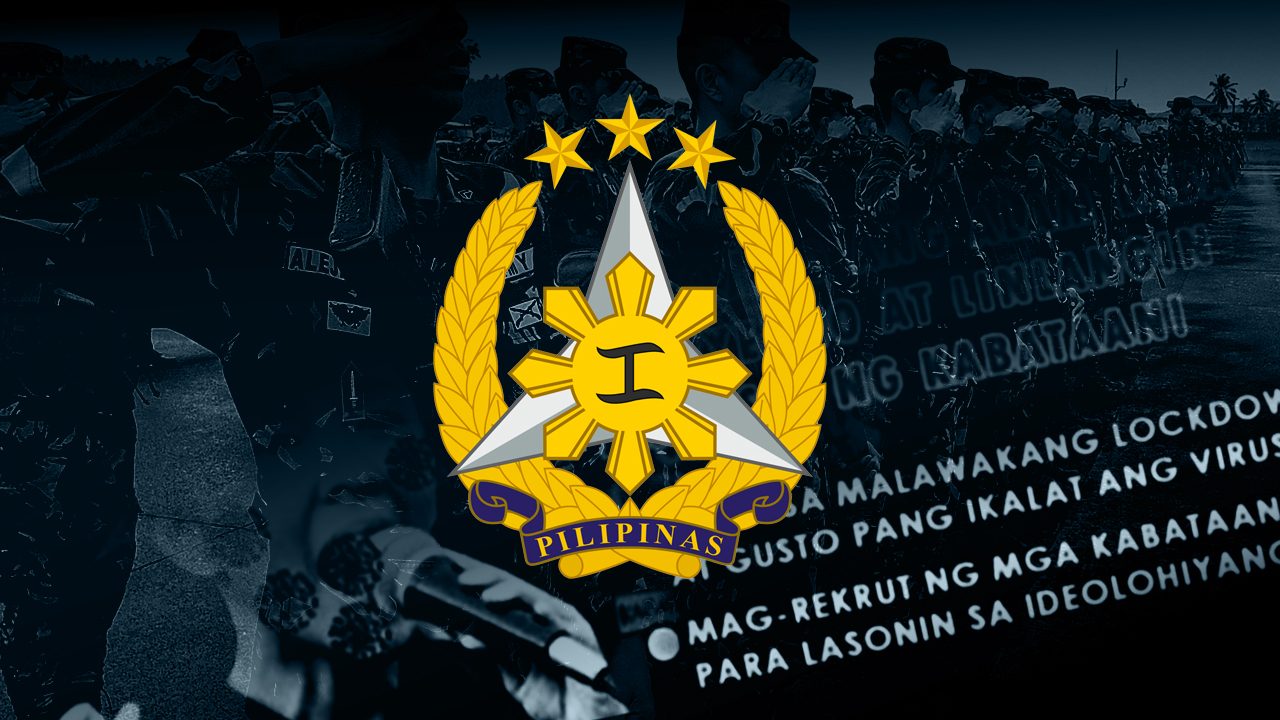SUMMARY
This is AI generated summarization, which may have errors. For context, always refer to the full article.

The Armed Forces of the Philippines (AFP) and the Philippine National Police (PNP) insisted on Wednesday, September 23, that they had no hand in the management of accounts busted by Facebook for spreading disinformation.
In separate statements, the two uniformed services insisted that they valued “truth and accountability” and that they are aware of the power of using social media.
The denial came despite multiple reports documenting police and military commands spreading fabricated information on their social media accounts over the same topics that Facebook mentioned.
Rappler investigated some of these pages that habitually publish disinformation or amplify content from fake news purveyors. (READ: With anti-terror law, police-sponsored hate and disinformation even more dangerous)
During a recent budget hearing at the House of Representatives, Defense Secretary Delfin Lorenzana even defended official social media accounts of Army commands that spread fabricated information that red-tagged lawmakers and critics.
The military is under pressure to end the communist insurgency by 2022, when President Rodrigo Duterte’s term ends.
Up and running
“In so far as the AFP is concerned, there are no accounts that the AFP maintain that were shutdown or removed by Facebook. All of them are up and running,” the AFP said.
The military is referring to its official social media accounts, which were not the subject of Facebook’s investigation.
Meanwhile, the PNP, said that whatever topics discussed by the accounts that are outside the PNP’s work are considered disowned by the organization.
“All comments and opinions of individual personnel, associations and sectoral groups on matters that are not related to the organization’s activities are hereby disowned by the PNP as unofficial and unauthorized,” the PNP said.
What network?
The AFP and the PNP were reacting to Faceboook’s report on Wednesday morning that it had shut down a disinformation network linked with the two uniformed services.
The Philippine network that was taken down was made up of 57 Facebook accounts, 31 Pages, and 20 Instagram accounts which catered to a Philippine audience. Facebook did not provide a list of accounts or pages in its report.
Facebook said the network violated its policy “against foreign or government interference which is coordinated inauthentic behavior on behalf of a foreign or government entity” and had links to the Philippine military or Philippine police.
According to Facebook, some 276,000 accounts followed one or more of these pages. About 5,500 people followed one or more of the offending Instagram accounts. The network appeared to have spent around $1,100 for ads on Facebook, which was paid for in Philippine pesos.
This particular operation, which Facebook said appeared to have accelerated between 2019 and 2020, posted in English and Filipino about the following topics:
- local news and events including domestic politics
- military activities against terrorism
- the anti-terrorism bill
- criticism of communism
- youth activists and opposition
- the Communist Party of the Philippines and its military wing the New People’s Army
- the National Democratic Front of the Philippines
Probe?
PNP chief General Camilo Cascolan earlier ordered a probe on September 10 into Facebook pages managed by police stations that tagged activists as terrorists after being pressed by lawmakers to do so.
The PNP has not released any update on the probe ever since. – with a report from Victor Barreiro Jr/Rappler.com
Add a comment
How does this make you feel?









![[The Slingshot] Lito Patay’s 4 hours and 38 minutes of infamy](https://www.rappler.com/tachyon/2024/07/Lito-Patay-4-hours-infamy-July-19-2024.jpg?resize=257%2C257&crop=233px%2C0px%2C720px%2C720px)
There are no comments yet. Add your comment to start the conversation.